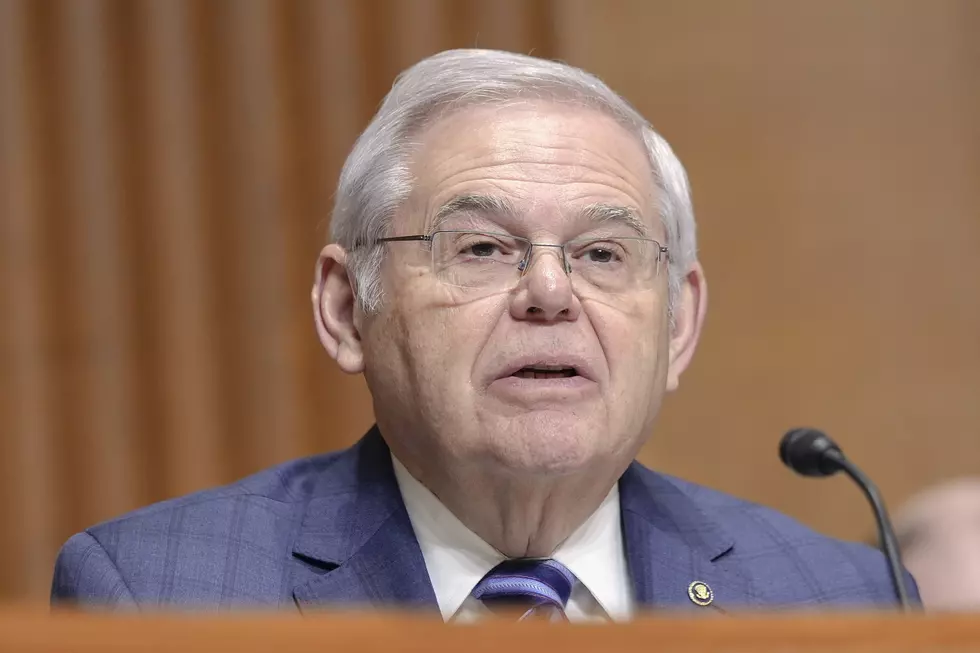
Memories from the CBS boss who signed Dave 22 long years ago
NEW YORK (AP) -- In his long career at CBS and then as Sony boss, Howard Stringer faced plenty of ticklish negotiations and weighty talent deals.
But there was nothing to match the roller-coaster ride that led to his signing David Letterman and the launch of "Late Show" in 1993.
With Letterman's retirement now only days away, and Stephen Colbert in the wings to carry on the "Late Show" franchise, Stringer recalls the stormy process of bagging Dave with lingering bemusement.
"It was quite a neurotic experience," he sums up with a laugh.
Now 73 and himself retired as Sony's Chairman of the Board, Stringer was president of CBS when the seismic plates of late-night TV began shifting: Johnny Carson in 1992 was stepping down from NBC's "Tonight Show" after 30 triumphant years, to be replaced by Jay Leno -- and infuriating Letterman, who had logged an impressive decade following Carson as "Late Night" host and expected to be offered the "Tonight" anchor chair.
The challenge facing Stringer was to convince Letterman he could have a no less bright future in late night at CBS. Meanwhile, NBC desperately tried to wangle a way to keep Letterman in the fold beyond his soon-to-lapse contract -- perhaps even by uprooting Leno after an iffy first few months at "Tonight" and handing Letterman the prize after all.
"We never quite knew what NBC was going to do for such a long time, and the ball was in their court," says Stringer, "so throughout the negotiations we knew that NBC could stop us dead in our tracks. That created a certain level of anxiety."
CBS had never scored a successful talk show in late night, so he considers it a no-brainer that Letterman was seen as the ideal fix.
"He was certainly the best man available, and a proven star," says Stringer, who, Welsh-born, adds, "I liked what he stood for, maybe in part because I'm British: I saw him as a successor to (British humorist) David Frost, the Monty Python crew, and Peter Cook and Dudley Moore."
But others were stalking Letterman as well, which led to an "audition" where Stringer and rival suitors (including Fox and ABC) could each plead his case to the Letterman team.
"I had a very simple message to David: `At CBS you would be in the tradition Ed Murrow, Lucy (Ball), Jack Benny, Alan Alda, Mary Tyler Moore and our other stars.' He really did fit in with the history of the network, and it's an indication of how thoughtful a man he is that he understood that, and liked that."
Stringer has warm memories of growing up in Britain where he and his father regarded CBS across the pond as "THE important network, full of milestones in entertainment and news programming. For me to get David Letterman was to suggest that I had some minor role in the continuity of CBS history, and that meant a lot to me."
In early 1993, NBC's final offer to hold Letterman failed to match CBS' bid, which left Dave free to go elsewhere. On January 14, he settled the question for a waiting world by telling "Late Night" viewers that his choice came down to the flip of a coin: "Heads CBS ... tails CBS."
Naturally, his Top 10 list that night covered reasons for his decision, including: "In order to grow as an artist, I feel it's important to do the same crap over at CBS."
On June 25, 1993, he named himself "NBC Employee of the Month" and exited the network forever.
Two months later, "Late Show" premiered.
"If you think about it," Letterman grinned that night, brushing off the giddy reception at CBS' newly spiffed-up Ed Sullivan Theater, "all I really did was take the summer off."
That night was a victory for Stringer along with Letterman as a rivalry began that would last much of the next 22 years, pitting Dave against the host of the show he was denied as he started a TV institution from scratch -- and, while mostly holding second-place in the ratings, always far in the lead for creativity.
With the end of Letterman's reign nearing, Stringer, who left CBS in 1995 after three decades at the network, refuses to share credit for Dave's record-breaking run.
"I just seized an opportunity that presented itself," he says. "I take it personally only in the sense that I feel a sense of pride that he was everything we hoped he would be."
And, yes, he says he'll be watching on May 20 when Letterman bids his "Late Show" fans farewell: "I will be quite sentimental on that occasion, I think."
(Copyright 2015 The Associated Press. All rights reserved. This material may not be published, broadcast, rewritten or redistributed.)
More From New Jersey 101.5 FM









